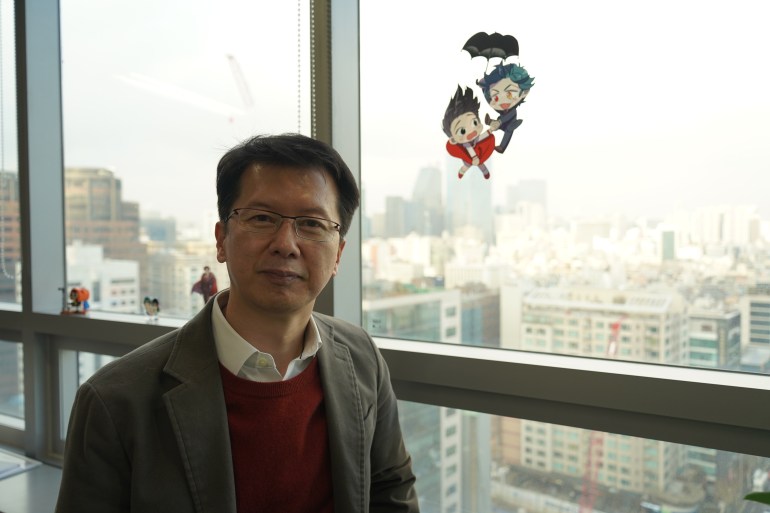Piccoma, a digital manga subscription service, pulled in more revenue in 2021 than any other non-gaming app except TikTok and YouTube, according to market intelligence company Sensor Tower, whose estimates exclude spending on mobile commerce such as Amazon purchase and food deliveries.
In October, less than six years after its launch in 2016, the app passed $1bn in accumulated transactions – a feat achieved by only 15-non gaming apps worldwide, according to Aljazeera.com.
Piccoma’s success is all the more extraordinary as the service is only available in Japan.
Yet the world’s most popular manga app doesn’t hail from the art form’s homeland but South Korea, the cultural powerhouse behind global phenomena such as “Squid Game” and “Parasite”.
Kakao Piccoma, the developer, is a subsidiary of South Korean tech juggernaut Kakao, the company behind the country’s most popular messaging app.
While Japan’s manga market is by far the world’s biggest, it is South Korean companies that are leading the industry’s digital transformation.
South Korean tech companies, including Kakao and Naver, controlled more than 70 percent of the Japanese digital manga market in 2021, according to a Korea Creative Content Agency (KOCCA) white paper released that year.
While paper manga comics remain popular, digital sales took over the biggest slice of the market last year, and are estimated to grow more than 80 percent by 2025, according to the KOCCA.
South Korea’s webtoon market grew more than 64 percent in 2020 compared with the previous year, surpassing the one trillion won milestone ($840m), according to the KOCCA.
But like South Korea’s other cultural industries, webtoons are increasingly looking overseas to find success.
Lee, the head of C&C Revolution, said about 65 percent of his company’s revenue now comes from overseas markets. While the industry average is less than 30 percent, according to the KOCCA, revenues from overseas are increasing and are likely to continue doing so.
The global comics market in 2020 was estimated to be worth $11bn, about one-quarter of the value of the film or music industry in the pre-pandemic era, according to the KOCCA.
Some industry insiders argue webtoons have the potential to grow far beyond anything achieved by the market for traditional comics.
“A common mistake is to consider printed comics and webtoons as the same,” Seo said. “It’s true that webtoons are derived from printed comics but what we’re seeing in the industry now shows that the webtoon industry has a completely different character and purpose than the printed comic industry.”
Lee said he believed the buzz around webtoons was only just getting started.
“In the old days, we were busy trying to attract other countries’ attention but now they are looking to us,” he said.
“In this market condition, the cycle won’t end anytime soon.”

The seeds of South Korea’s digital revolution of the industry can be found in the collapse of its own comic book industry in the late 90s.
The 1997 Asian financial crisis dealt a severe blow to the sector as sales plummeted amid mass unemployment. Some publishers churned out rip-offs of Japanese comics to stay afloat, while others were forced to shut down.
“After we fell apart all at once, we were busy looking for an exit,” Lee Jae-sik, an industry veteran and the founder of Korean webtoon production company C&C Revolution, told Al Jazeera.
For many industry figures, including Lee, the dot-com boom of the late 1990s appeared to be a golden opportunity. It was, however, not easy for the tottering industry to stand on its own feet when the country had yet to fully recover from the economic crisis.
The big breakthrough came when burgeoning search engines, mainly Daum, began seeking new ways to keep users coming to their sites.
Beginning in the early 2000s, South Korean Internet portals started offering digitised comic books and original comics made for the web for free.
Search engines’ embrace of the medium enabled webtoons to expand their readership beyond typical comic book readers and evolve during the coming mobile era.
As most Internet users viewed the comics on their smartphones, webtoons adopted a distinctive, vertical scroll-to-read style.
“The very act of scrolling to read gives it a kind of feeling of movement, such as the movement of a gaze or flow of time,” Seo Bum-gang, the head of the Korea Webtoon Industry Association, told Al Jazeera.
“For those who work in the film, it strikingly resembles storyboards used in their industry. When the audience reads a webtoon, they can easily associate it with a motion picture.”
Since the late 2000s, the South Korean film and TV industry has been busy adapting webtoons. Since the runaway success of office drama series Misaeng in 2014, webtoons have been a major source of inspiration for the Korean entertainment scene.
Netflix has been especially enthusiastic about adapting the medium.
Following the international success of Kingdom, Sweet Home and Hellbound, the entertainment company is planning the release of five webtoon-based series this year.
The global success of webtoon-inspired TV series has, in turn, fuelled the popularity of South Korean comics in foreign markets. After the TV series Itaewon Class became a smash hit in Japan, the webtoon on which it was based became took off helped Piccoma overtake rival app Line Manga, developed by Naver.
